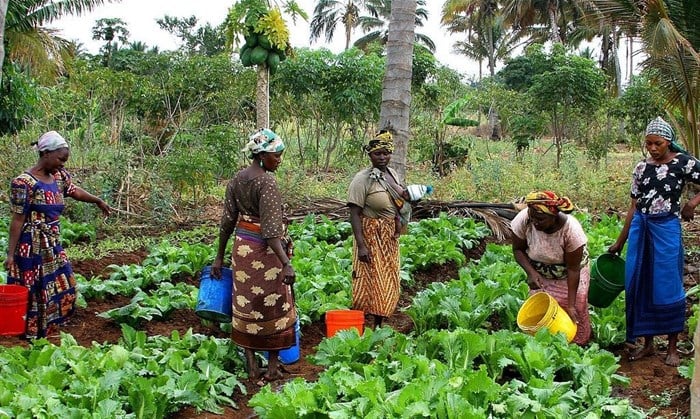
Top stories



Energy & Mining#Sona2026: Govt eyes green energy, critical minerals to boost economy and jobs
2 hours

ESG & Sustainability#Sona2026: President announces crisis committee to tackle SA's water challenges
1 hour


More news
















Let’s deal with the pragmatic first. Women make up half of the population and provide an average of 40% of the labour in crop production in sub-Saharan Africa. Moreover, Africa is a continent of young people – 60% of the population is under 24 years of age, and about 12 million young people join the workforce every year. Any way you look at it, more people have a lot to offer in terms of producing food and fibre.

The more strategic way of looking at it comes back to the old saying, "If the only tool you have is a hammer, every problem looks like a nail." If we focus our development efforts only on men and especially older farmers, the solutions that we will come up with will be limited. Bring in women and young people, and we open up new horizons.
Women give higher importance to feeding their families and educating their children than men do. Women are also more pragmatic. For example, while men may dream of owning a cow, women will get on with the business of raising sheep, goats or poultry and providing good nutrition for their families and boosting their family income.
Studies have shown that a $10 increase in a woman’s income improves the nutrition and health of her children by as much as a $110 increase in a man’s income. Yet women face numerous barriers to achieving a higher income. Across sub-Saharan Africa, only 15% of landholders are women. Moreover, lack of collateral is at the root of many of their constraints such as poorer access to education, finance and advisory services and the like.
Closing this 'gender gap' could increase yields on women-owned farms by 20 to 30%, which could reduce the number of hungry people by 100 to 150 million. And because they bring a different perspective – a screwdriver rather than a hammer – women often create innovative solutions that had not occurred to men. Take, for example, Lovin Kobusingye, founder of the fish processing business Kati Farms Ltd in Uganda. Her idea for fish sausages created a whole new market and reinvigorated fish farming in the country.
Most people born since the mid-1990s have probably never known a world without smartphones – one of the key technologies that are opening up opportunities for giving farmers access to agricultural knowledge and advice, weather forecasts, digital banking, market information and the like. And these young people are the ones who are tech savvy and can develop these solutions.
But because of limited funds and training, young people are hampered by lack of opportunities and access to the skills and resources they need to take their enthusiasm from idea to successful enterprise. The Technical Centre for Agricultural and Rural Cooperation (CTA) has been supporting youth in agriculture through initiatives such as Pitch AgriHack and the centre’s focus on the use of new technologies such as drones to facilitate agricultural transformation in Africa.
Pitch AgriHack offers young e-agriculture entrepreneurs business training, mentorship, incubation and networking opportunities. Since its inception in 2016, some 700 young entrepreneurs have taken part in Pitch AgriHack and around 26 information and communication technology (ICT) hubs or institutions from 20 countries including Botswana, Nigeria and Uganda have been involved. This year’s Pitch AgriHack competition focuses on empowering women entrepreneurs in applying ICT innovations in agriculture – the best of both worlds.
Women lead half of the 26 start-ups that will be pitching their e-agribusinesses to policymakers and potential investors at the African Green Revolution Forum in Rwanda next month (5-8 September 2018). And the opportunities offered by CTA’s Pitch AgriHack are well illustrated by the 2016 winner, Brastorne Enterprises and their mAgri platform, which now has half a million users and 100,000 monthly subscribers in Botswana.
The potential of these approaches is rapidly making its mark, from mobile apps such as Hello Tractor, described as "Uber for farmers", which allows small-scale farmers to hire a tractor or other agricultural machinery, to the use of drones to monitor the health and productivity of tea plantations and other crops across Africa.
Imagine how we can transform agriculture and food security across Africa if we bring the power of women and youth to bear on the challenges we face. The future looks bright.
This piece was produced by SciDev.Net’s Sub-Saharan Africa English desk